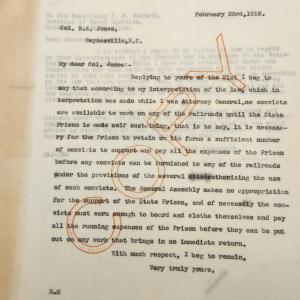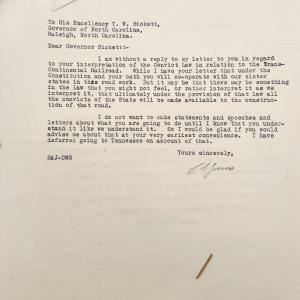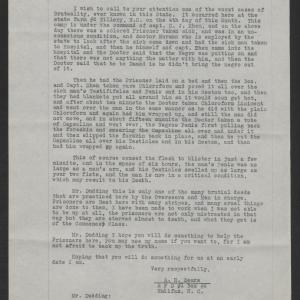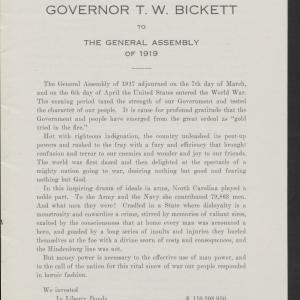- Transcription
February 18th, 1920.
Rev. F. A. Ewart,
President Ministerial Association,
Newton, N.C.
My dear Mr. Ewart:-
I am in receipt of your letter of the 17th enclosing copy of resolution by the Ministerial Association of Newton, and have given to it the consideration which the character and dignity of the members of your Association deserve.
I regret that I cannot concur in the conclusion reached by your honorable body. I have had eleven years experience in the prosecution of criminals and in the study of criminal records. The result of these eleven years of close observation and profound study is a deep conviction in my mind that the average man who is sent to jail is not essentially a criminal nor a moral pervert, but is a perfectly normal man who, by reason of environment for which he is not responsible, or by reason of some sudden temptation or passion is led into the commission of a crime.
I also entertain a profound conviction that after a man has been punished to a reasonable extent, that if he is then given an opportunity under proper conditions to about face, he will take advantage of it and be a better citizen than he ever was before.
These two convictions controlled me in my disposition of the case of Gordon Rudisill. It appeared from the record before me that this young man was only nineteen years of age, and that this was his first offense against the law of the land. This was not denied, and, in fact, no protest was registered here although due and timely notice of the petition had been given in the Catawba county paper. I was convinced that to allow this young man to serve three months of his allotted term, and then turn him out with a suspended sentence of three months more hanging over him upon the rigid conditions which I imposed, to-wit, that he must for a period of five years refrain from the manufacture, sale or use of intoxicating liquors and must not associate with men who he has any reason to believe are engaged in violating the liquor laws of the State, would be better for the young man himself and for society than to make him serve the additional three months and turn him loose without any restraint whatever.
In other words, I believe it best to give a young man a second chance. I believe that it is hard common sense to do it, and I furthermore believe that to give a young fellow a chance to make a new man out of himself is not contrary to the will of "Him whose mercy endureth forever.
Very truly yours,
[unsigned]
B_G






